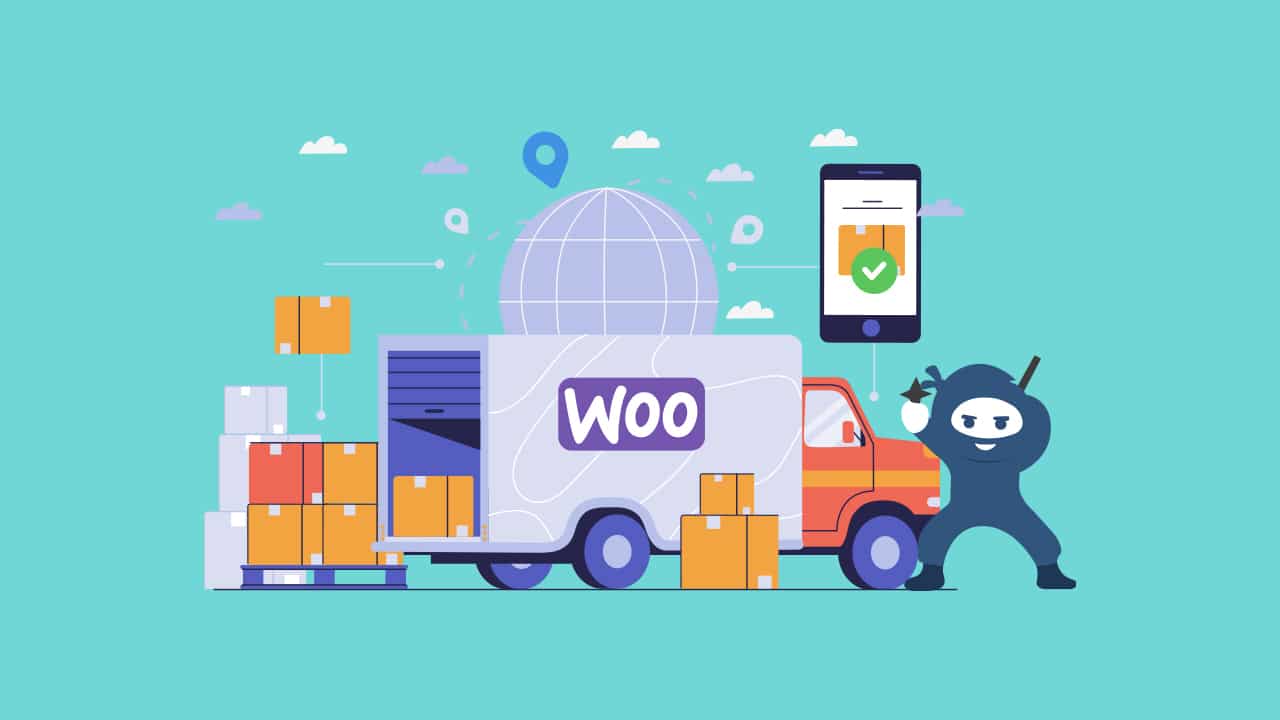As a business owner, you perpetually seek avenues for growth and ways to elevate your game. If you’re thinking about scaling your brand and launching an online store, you might be at a crossroads, trying to figure out how to proceed.
Establishing an online presence for your store necessitates a website, but the question remains: which platform is the optimal choice for your specific needs?
That is why we are here! As a business owner establishing your digital store, choosing between WooCommerce and Shopify is a major decision. Let us walk you through the intricate details of the two platforms and compare them to help you make an informed decision for your online store.
Let us get started!
What is WooCommerce?
Imagine you want to open a shop, but it is on the Internet instead of a physical location. This online shop is what we call an e-commerce store. To create this online shop, you need some tools and a platform. Here comes
WooCommerce – a toolbox for building your online shop.
It is a free tool you can add to your WordPress website, like your shop’s foundation or base. WordPress is a popular tool used to create websites, and WooCommerce is a unique tool developed to add e-commerce or online shopping features to these websites.
With WooCommerce, you can sell almost anything on your website. This includes physical items you ship to customers, digital items that customers download, or even services you provide. It is very flexible and can be used by anyone, even without experience with coding or website development.
In simple terms, WooCommerce is your helper for setting up your online shop. It gives you all the necessary tools and features to display your products, set prices, add a shopping cart, and finally allow customers to make purchases.
What is Shopify?
Shopify is like a ready-made shop you can move into and start selling your products. The platform lets anyone create, grow, manage, and scale a business. It is like a big online shopping mall where you have space to set up your shop.
With Shopify, you can sell almost anything you want, from physical items you ship to customers, digital items that customers can download, or even services you provide. The best part is that you do not need any experience with coding or website development to use Shopify.
In simple terms, Shopify is like your ready-to-use online shop. It gives you all the necessary tools and features to display your products, set prices, add a shopping cart, and finally allow customers to make purchases.
WooCommerce Vs. Shopify (Head-to-Head Comparison)
Before we dive into the detailed comparison of WooCommerce and Shopify, you must understand that both are top-notch choices for creating an online store. They are designed with the user in mind, making it possible for anyone to launch an e-commerce business. However, they each have their strengths and cater to slightly different needs.
Here, we aim to highlight the differences and similarities, helping you decide which platform aligns best with your business goals and personal preferences. Remember, the best platform for you depends on your specific needs, your technical expertise, and the unique requirements of your online store. Let’s dive in and explore these two e-commerce giants head to head.
| Points of Difference (PoD) | WooCommerce | Shopify |
| User Base | Over 6 million users worldwide | More than 4.5 million users globally |
| Theme Availability | Unlimited selection of both free and paid themes | Over 123 free and paid themes |
| Ease of Setup | Requires an intermediate level of technical knowledge | User-friendly and easy to set up |
| Blogging Capability | Fully integrated blogging platform | Limited blogging functionality |
| Mobile Responsiveness | Depends on the chosen theme | Inherently mobile responsive |
| Email Newsletters | Available with the addition of a plugin | Built-in functionality |
| HTML Compatibility | Fully compatible | Fully compatible |
| Support | Community-driven support through forums and blogs, variable support from theme and plugin editors | Comprehensive support via phone, chat, email, documentation, and forum |
| SEO Friendliness | SEO-ready | SEO-ready |
| Product Editor | Uses WordPress Editor/Blocks | Similar to the WordPress editor |
| Storage Space | Depends on your server size | Unlimited |
| CSV Catalog Import | Supported | Supported |
| Payment Gateways | Supported | Supported |
| Offline Payments Tracking | Supported | Supported |
| Marketplaces Connection | Supported | Supported |
| Catalog Size | Unlimited | Unlimited |
| Inventory Management | Comprehensive | Comprehensive |
| Trial Version | Not available | 14-day trial without a credit card |
| Sales Commissions | None | Ranges from 0.5% to 2% |
| Pricing | WooCommerce is a free plugin | Basic: $25/mo, Shopify: $65/mo, Advanced: $399/mo |
What’s More Popular? WooCommerce vs. Shopify?
WooCommerce – A Flexible Powerhouse
WooCommerce’s popularity stems from its flexibility and beginner-friendly nature. As a free plugin for WordPress, it allows anyone to transform their website into a fully functioning e-commerce store.
WooCommerce powers over 25% of e-commerce stores in the top 1 million sites worldwide, a testament to its widespread use and acceptance. The United States hosts most of these sites, with over 2.8 million WooCommerce websites.
The main reason for WooCommerce’s popularity is its deep integration with WordPress. It also offers thousands of free and paid themes and plugins, allowing users to extend their store’s functionality. WooCommerce is open-source, meaning developers can modify or extend the code, making it a highly customizable platform.
Shopify – A User-Friendly Solution
On the other hand, Shopify is popular because of its low startup costs, accessible interface, and easily customizable templates for online stores. It offers secure site hosting, so users cannot upgrade their software or web servers.
Shopify’s popularity also lies in its comprehensive features catering to new and seasoned entrepreneurs. It provides a suite of services all in one place to sell online, on social media, and in brick-and-mortar locations. The user-friendly approach, powerful performance, high flexibility, and complete features make it a popular choice for online retailers.
Which Platform Is Best For e-Commerce?
When choosing an e-commerce platform for your business, the decision often boils down to two major players: WooCommerce and Shopify. Both platforms offer robust features to help you build and manage your online store. However, they cater to different users and have unique advantages.
WooCommerce
WooCommerce is a free WordPress plugin that turns your website into a fully functional e-commerce store. It is an open-source platform, which means you can modify and customize everything to your liking, making WooCommerce an excellent choice for businesses that want complete control over their online store.
One of the main advantages of WooCommerce is its flexibility. You can sell anything from physical products to digital downloads, subscriptions, and appointments. Plus, with access to thousands of free and premium WordPress themes, you can design your store to look exactly how you want.
Shopify
On the other hand, Shopify is a fully hosted platform that handles all the technical aspects of running an online store. This includes hosting, security, and updates, making Shopify an excellent choice for businesses that want to get up and running quickly without worrying about the technical details.
Shopify is known for its user-friendly interface. It offers a variety of professionally designed themes that are responsive and customizable. Shopify owns a full-featured content management system that allows you to run your entire business in one place.
However, unlike WooCommerce, Shopify is not free. It operates on a monthly subscription model with several plans.
WooCommerce vs. Shopify – Detailed Comparison
Dropshipping
Dropshipping is a popular e-commerce model where the store owner doesn’t keep the products it sells in stock. Instead, when a store sells a product, it purchases the item from a third party and has it shipped directly to the customer – no hustle for the seller.
Two of the most popular platforms for dropshipping are WooCommerce and Shopify. Both platforms offer robust features to help you build and manage your dropshipping business. However, they cater to different users and have unique advantages. Let us see who is better!
WooCommerce
WooCommerce is a popular choice for dropshipping due to its flexibility and control over your online store. As a free WordPress plugin, WooCommerce lets you choose your hosting, domain, and security. This means you have complete control over your store and can customize it to fit your needs.
WooCommerce also offers many plugins and extensions to enhance your dropshipping business. For example, some plugins allow you to import products directly from suppliers into your WooCommerce store. Some top third-party WooCommerce extensions include:
- DropshipMe,
- AliDropship,
- WooDropship,
- YouDroop.
However, setting up a WooCommerce store for dropshipping requires some technical knowledge and may be more time-consuming than Shopify.
Shopify
On the other hand, Shopify is a fully hosted platform that makes it easy to start a dropshipping business. It offers a range of apps to help you find products to sell, automate the ordering process, and manage your inventory.
Some of the best Shopify dropshipping add-ons include:
- Spocket,
- Ali Orders AliExpress Dropship,
- MIIUT ‑ Unlimited Dropshipping,
- and CJDropshipping.
One of the most popular apps for dropshipping on Shopify is Oberlo, which allows you to find products from various suppliers and add them to your Shopify store with a few clicks.
Shopify’s user-friendly interface and straightforward setup process make it an excellent choice for beginners. It also offers 24/7 customer support, which can be a significant advantage if you are new to dropshipping. However, Shopify’s pricing plans are more expensive than WooCommerce, especially if you run multiple dropshipping stores.
Who Did Better?
Considering the differences, WooCommerce has a more significant advantage over Shopify regarding dropshipping since it is free with endless customization and extensions available.
Scalability
When choosing an e-commerce platform for your business, scalability is a crucial factor to consider. Scalability refers to the ability of your online store to handle increased traffic and sales as your business grows.
WooCommerce and Shopify are designed with scalability in mind, but they approach it differently. This section will detail a comparison of WooCommerce and Shopify based on scalability.
WooCommerce
WooCommerce is a highly scalable platform that can handle many products and transactions. It is a popular choice among businesses anticipating rapid growth, as it allows for easy scaling of your online store.
WooCommerce is built on WordPress, which means it benefits from the robustness and flexibility of the WordPress ecosystem. It can handle thousands of products and significant traffic, making it a good choice for large online stores.
However, the scalability of WooCommerce largely depends on your hosting solution. As your store grows, you may need to upgrade your hosting plan or switch to a more powerful server to maintain optimal performance. Additionally, using plugins and extensions can impact the performance of your WooCommerce store, so it’s essential to use high-quality, well-coded plugins.
Shopify
On the other hand, Shopify is a fully hosted platform, which means it takes care of all the technical aspects of running an online store, including scalability. Shopify’s infrastructure is designed to handle high traffic and sales volumes, making it an excellent choice for high-growth businesses.
One of the key advantages of Shopify is its ease of scalability. As you grow, Shopify easily scales along. You do not have to worry about server management, security updates, or performance optimization – Shopify takes care of everything.
Shopify also offers a range of plans to suit businesses of all sizes. As your store grows, you can upgrade to a higher plan to access more features and better performance. This makes Shopify an excellent choice for businesses that want a scalable, hassle-free e-commerce solution.
Who Did Better?
WooCommerce offers more flexibility and control but requires more management handled efficiently by the experts. Shopify, on the other hand, provides an all-in-one solution that makes scaling easy but may be more costly as your store grows.
Cost & Pricing
Cost is one of the first factors to consider when launching an online store. The cost of running an e-commerce store can vary greatly depending on your chosen platform.
Let’s examine the cost implications of choosing WooCommerce or Shopify for your online store.
WooCommerce
WooCommerce is a free WordPress plugin, making it a cost-effective choice for businesses on a tight budget. However, while the plugin is free, other costs should be considered when setting up a WooCommerce store. These include hosting, domain registration, and SSL certificates for running a secure and live website. The cost of these can vary, with hosting like Bluehost costing around $10 a month and $15 for registering a domain name.
In addition to these, you might also need to purchase premium themes, plugins, or extensions to add specific functionalities to your store. A paid theme can range from $30 to $300 or more.
However, the cost of these can vary widely, and plenty of free options are available. Paid plugins and add-ons, which can enhance the functionality of your store, can cost around $50 on average.
Despite these additional costs, WooCommerce can still be a more affordable option, especially for businesses just starting or those requiring a high level of customization.
Shopify
Shopify operates on a monthly subscription model, with monthly pricing plans ranging from $9 to $299.
The Basic Shopify plan, which is best for new e-commerce businesses with occasional in-person sales, is $29 monthly. The Shopify middle package, best for growing businesses selling online or in-store, is $79 monthly. The Advanced Shopify, best for scaling businesses requiring advanced reporting, is $299 monthly. All these plans include hosting, an SSL certificate, and access to Shopify’s customer support.
One of the key advantages of Shopify’s pricing structure is its transparency. All the costs are laid out, and there are no hidden fees.
However, Shopify does charge transaction fees ranging from 0.5% to 2% unless you use Shopify Payments. This is something to consider when calculating the total cost of running your store on Shopify.
Who Did Better?
Ultimately, the winner depends on your specific needs and budget. WooCommerce is a more cost-effective option since it is free and has no transaction fees. Yet, it is essential to consider all costs, including hosting, themes, and plugins. Shopify’s pricing plans include everything you need for your online store, but the price can increase as you scale and may include unused resources.
Intuitiveness Test
When choosing an e-commerce platform, ease of use is a critical factor to consider. A user-friendly platform can save you time, reduce frustration, and help you focus on growing your business rather than wrestling with technical issues.
WooCommerce
WooCommerce is a highly configurable e-commerce platform popular with small to medium-sized businesses. With over 3.9 million online stores already being built, the platform was recently ranked on the Forbes list of Best E-Commerce Platforms. However, while WooCommerce offers a high degree of flexibility and customization, it does come with a learning curve.
Built on WordPress, WooCommerce benefits from the robustness and flexibility of its ecosystem. However, this also means that to get the most out of WooCommerce, you must be familiar with WordPress. This makes the initial setup process more complex compared to Shopify.
Despite this, once you have got the hang of it, WooCommerce offers an intuitive design and a non-technical interface that you can assemble in a single day. It is also worth noting that plenty of resources are available online to help you learn how to use WooCommerce effectively.
Shopify
Shopify, on the other hand, is known for its user-friendly interface and straightforward setup process. It is a fully hosted platform, which means it takes care of all the technical aspects of running an online store, including hosting, security, and updates. This makes Shopify an excellent choice for beginners.
With Shopify, you can build and customize an online store and sell in multiple places, including online, across mobile devices, and in-person through brick-and-mortar locations. Orders, customers, and other information are synced across various channels through powerful integrations. Therefore, you manage all in one place since everything is connected, from social media to online marketplaces.
Shopify is 100% secure, based, and hosted on the cloud – you can safely access it from anywhere, offering you the flexibility to run your business anywhere.
Integration and Add-ons
Integrating with other systems and adding functionality through add-ons is another essential element of a good e-commerce platform. Use WooCommerce and Shopify based on their integration capabilities and add-on offerings.
WooCommerce
WooCommerce is an open-source platform offering a high degree of flexibility and customization. One of the critical strengths of WooCommerce is its extensive plugin library. Thousands of free and premium plugins can add many functionalities to your online store.
Some of the top WooCommerce plugins include:
- Role Based Pricing for WooCommerce,
- WooCommerce Custom Product Builder,
- Yoast SEO,
- Elementor,
- and Wp forms.
These plugins can enhance various aspects of your online store, from pricing and product customization to SEO and form creation.
However, while the availability of numerous plugins offers a high degree of flexibility, it also means that you need to be careful when choosing plugins. Poorly coded or outdated plugins can introduce vulnerabilities and affect the performance of your online store.
Shopify
On the other hand, Shopify is a fully hosted platform offering a comprehensive app marketplace. This marketplace features thousands of apps that can add various functionalities to your Shopify store.
One of the key advantages of Shopify’s app marketplace is its ease of use. You can easily search for apps based on their functionality and read reviews from other users before installing them. Plus, most apps offer a free trial period, allowing you to test them before committing.
However, while Shopify offers a wide range of apps, not all are free. Many apps require a monthly subscription, which can add to the overall cost of running your online store.
Detailed Comparison Between WooCommerce and Shopify Based on Support
WooCommerce and Shopify offer a range of support options to cater to their users’ needs. However, how they provide support and the extent of available resources can vary significantly. Let’s see it in detail:
WooCommerce
WooCommerce is an open-source platform; therefore, it has many users and developers actively contributing to its development and support. This community-driven approach to support becomes a valuable resource for finding solutions to common problems.
It also offers an in-depth support tab that allows users to lodge an issue and receive a ticket. The ticketing system ensures that the WooCommerce support team tracks and promptly resolves your issue.
Moreover, there are numerous online forums and resources where you can find answers to common questions and issues. These community resources can be a great way to get help and learn from other WooCommerce users.
However, it is essential to note that because WooCommerce is a self-hosted platform, you are responsible for maintaining and securing your store. However, WooCommerce developers and maintenance providers are available 24/7 to address your concerns and offer immediate help.
Shopify
On the other hand, Shopify is a fully hosted platform offering comprehensive support for all your online stores. Shopify offers 24/7 support via live chat, email, and phone. Get help whenever you need it.
The support team is known for being responsive and helpful. They can assist with various issues, from setting up your store to troubleshooting technical problems.
In addition to direct support, Shopify offers a range of self-help resources, including a comprehensive help center, community forums, and tutorials and guides. These resources can help you learn more about using Shopify and resolve common issues independently.
WooCommerce vs Shopify: Pros and Cons
Now let us weigh the pros and cons of each platform to understand better which one to choose for your business:
WooCommerce: Pros
- Open Source
WooCommerce is an open-source platform, which means you can modify and customize everything to your liking. This allows for high flexibility and control over your online store.
- Cost-Effective
As a free WordPress plugin, WooCommerce is a cost-effective option for those on a tight budget. However, while the plugin is free, other costs should be considered when setting up a WooCommerce store.
- WordPress Integration and Plugins
WooCommerce is built on WordPress, which means it benefits from the robustness and flexibility of its ecosystem. Thousands of free and premium plugins can add many functionalities to your online store.
- SEO Enabled
WooCommerce is SEO-friendly and designed to help your online store rank higher in search engine results.
- Customization
WooCommerce offers a high degree of customization, allowing you to design your online store to fit your needs. You can choose from thousands of themes and customize them to match your brand.
- Scalability
WooCommerce is a highly scalable platform that can handle many products and transactions. It is a popular choice among businesses anticipating rapid growth, as it allows for easy scaling of your online store.
WooCommerce: Cons
- Tech Knowledge Required
While WooCommerce offers excellent flexibility and control, it requires technical knowledge to set up and manage.
- Maintenance
As a self-hosted platform, WooCommerce requires you to handle all aspects of maintaining your online store, including updates, backups, and security.
- No Direct Customer Support
While WooCommerce does not offer direct customer support, you still have to fend for yourself. You can work with WooCommerce developers and maintenance providers who can help resolve any issues you encounter. These professionals are well-versed in the intricacies of WooCommerce and can provide valuable assistance.
Besides, WooCommerce has a large and active community that can help you get your answers effortlessly. So, despite no direct support, you are always close to help.
Shopify: Pros
- User-Friendliness
Shopify is known for its user-friendly interface and straightforward setup process. It is a fully hosted platform, which means it takes care of all the technical aspects of running an online store, including hosting, security, and updates.
- Themes and Templates
Shopify offers a range of professionally designed themes that are responsive and customizable. This makes creating a visually appealing online store that matches your brand is accessible.
- 24/7 Customer Support
Shopify offers 24/7 customer support via live chat, email, and phone. This means you can get help whenever needed, regardless of your time zone.
- Payment Gateways
Shopify integrates with a wide range of payment gateways, making it easy to accept payments from customers worldwide. This includes popular options like PayPal, Stripe, and Shopify Payments.
Shopify: Cons
- Cost and Fees
While Shopify offers a range of pricing plans to suit businesses of all sizes, it can be more expensive than WooCommerce, especially if you’re running multiple dropshipping stores. Shopify also charges transaction fees for sales made through third-party payment gateways.
- Limited Customizations
While Shopify offers some customization options, they may be more limited than WooCommerce. Creating a unique online store that stands out can make it more challenging.
- Platform Lock-in
With Shopify, you’re locked into using their platform and must comply with their terms of service. If you decide to move your store to a different platform in the future, it can be a complex and time-consuming process.
WooCommerce vs. Shopify
Choosing between WooCommerce and Shopify depends on your needs.
WooCommerce is a free WordPress plugin that offers flexibility and control over your online store. It is excellent for those wanting a cost-effective solution and are okay with some technical work.
On the other hand, Shopify is a user-friendly platform that handles all the technical aspects of running an online store. It is perfect for beginners but can be more expensive, especially for larger businesses.
While both platforms are excellent, WooCommerce is a better choice for those wanting more control and are willing to handle some technical aspects. However, the best platform for you depends on your specific needs and budget.



